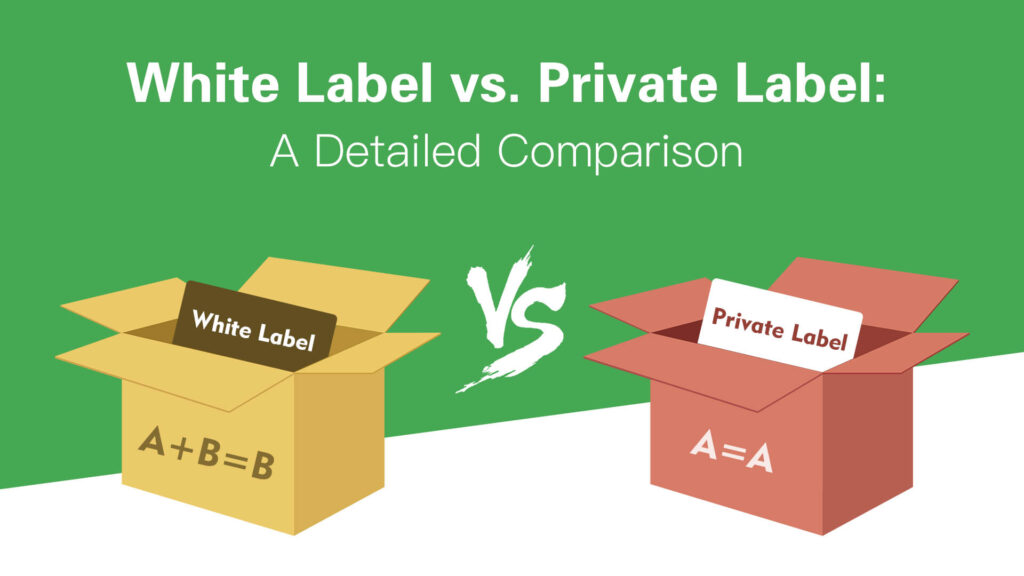
Table of Contents
Introduction to private labeling in India
In an era of global economic uncertainties, India is taking strategic steps to fortify its Micro, Small, and Medium Enterprises (MSMEs) sector, recognizing its significance in employment generation and economic contribution. Despite robust economic growth, the share of MSMEs in India’s exports has experienced a dip, highlighting the need for innovative strategies to bolster MSME exports. One such strategy that holds immense promise is private labeling in India’s Ecosystem.
Private Labels: A Potential Growth Catalyst
Private label products, often manufactured by MSMEs, bear the branding of retailers or e-commerce companies. India’s private label market is on an upswing, driven by the proliferation of organized retail formats, both physical and online. This surge is propelled by consumers seeking unique, high-quality products at affordable prices. As incomes rise and aspirations soar, consumers are shifting from unbranded to branded products, creating a burgeoning market for private labels as cost-effective alternatives.
Eminent retailers like Shoppers Stop, Reliance Retail, Amazon, and Nykaa have successfully expanded their private label offerings, offering consumers a broader array of choices. Private labels have made significant inroads across various sectors, from food and apparel to cosmetics, capturing over 12% of the Indian online beauty and personal care market this year. This transformation in consumer preferences is not just altering shopping habits but also serving as a lifeline to MSMEs, enabling them to surmount the challenges of brand building and customer outreach in today’s fiercely competitive landscape.

White Labeling vs. Private Labeling in India
When it comes to branding and marketing, two popular strategies stand out: white labeling and private labeling in India. Each approach has its unique advantages and considerations:
White Labeling:
- Third-Party Products: In white labeling, a company purchases products or services from a third party and sells them under its brand. This is ideal for businesses that want to quickly expand their product offerings.
- Time and Cost Efficiency: White labeling is a cost-effective way to enter new markets without the time and expense of product development.
- Limited Control: Since you’re reselling existing products, you have limited control over quality and product features.
Private Labeling:
- Customization: Private labeling involves creating your own products or services and selling them under your brand. This allows for customization and differentiation.
- Brand Control: You have full control over the branding, quality, and features of your products, fostering brand loyalty and recognition.
- Higher Investment: Private labeling often requires more significant upfront investments in product development and marketing.
In essence, white labeling is a quick way to enter markets, while private labeling offers more control and brand development. The choice depends on your business goals and resources.
Empowering MSMEs through Private Labels
Private labels play a pivotal role in empowering MSMEs and forecasting their revenues. Collaboration with private labels empowers MSMEs to diversify their product lines, reducing their reliance on a single product or a limited customer base, thereby achieving financial stability. Leveraging the established channels and customer bases of retailers, private labels help MSMEs cut marketing costs, fostering domestic and global expansion, resource-efficient growth, and innovation.
Moreover, producing Private labeling in Indian products allows small businesses to tap into the well-established supply chains of large retailers with extensive market reach. Exclusive supply agreements can reduce competition, providing MSMEs with revenue stability and financial security. Globally, this bolsters their competitiveness, and at the national level, it strengthens India’s reputation as a manufacturing and sourcing hub for global brands.

Balancing Regulation for Sustainable Growth
While the future looks promising, concerns regarding consumer protection from fake and misleading reviews of private-label products online have emerged. Presently, India lacks specific laws regulating private labels, and they fall under various regulations, including labeling rules and norms.
As e-commerce continues its meteoric rise, it’s imperative that regulations clarify the roles and responsibilities of sellers and marketplaces. Imposing overly rigid clauses that restrict companies from selling their private label products could hinder the growth of MSMEs through e-commerce platforms. Therefore, a balanced approach to regulating private label sales on these platforms is essential.
This approach should focus on identifying and addressing gaps in existing regulations, including those related to the Consumer Protection (E-Commerce) Rules, 2020, unfair trade practices, and dispute resolution mechanisms. These overlapping regulations not only hinder business operations but also obstruct the integration of MSMEs into global value chains through e-commerce platforms. A well-designed, transparent regulatory framework will benefit all stakeholders, including companies, MSME suppliers, and consumers. Such a framework should prioritize transparency, clarity, competition, non-discrimination, and a level playing field between store and non-store formats, ultimately expanding the reach of Indian MSMEs in both domestic and global markets.

Looking Ahead: Collaborative Growth
To meet current demand, it is imperative for the government and companies to establish partnerships and collaborations aimed at onboarding a greater number of MSMEs onto e-commerce platforms. This endeavor aligns with core G20 objectives and India’s Foreign Trade Policy 2023, enhancing the presence of MSMEs in the domestic market and strengthening their integration into global value chains.
In an ever-evolving global landscape, overlooking potential avenues for growth would be unwise. Private labels offer a promising pathway for Indian MSMEs to expand their horizons and thrive on the global stage, ultimately contributing to India’s economic growth and resilience. By embracing private labeling in India can unlock the true potential of its MSME sector and secure a brighter future for its economy.
FAQs related to Private Labeling in India
What is private labeling ?
How does private labeling work?
Why do companies choose private labeling in India?
What are the advantages of private labeling for businesses?
Can I customize the products under a private label?
What types of products are commonly private-labeled?
Is private labeling the same as white labeling?
How do I find a manufacturer for private labeling?
What should I consider when choosing a private label partner?
How can I protect my brand when using private labeling?
What is the typical cost structure for private labeling?
Are there any legal or regulatory considerations for private labeling?
Can I sell privately labeled products online?
How do I market and promote private label products?
What is the difference between OEM and private labeling?
what is white labeling ?
difference between white vs private label ?
For more IPO related content like this stay tuned with ipohunts.
for previous IPO study blog about Zomato Case Study: From Startup to Food-Tech Giant.
If you are Interested in cricket buzzers and updates then make sure to check out crikzone.
if you are interested in celebrity comparison make sure to check out blogsroom.


nice
very nice info